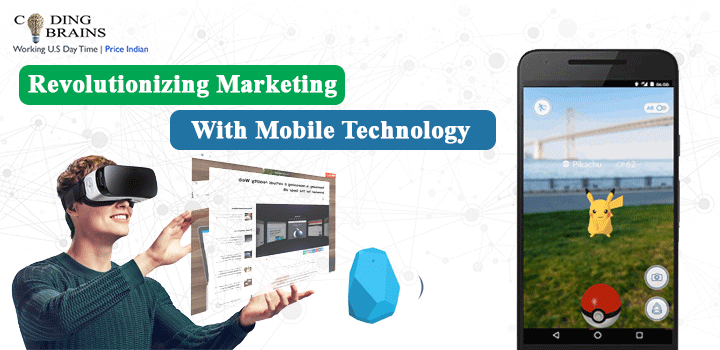
The manner of marketing was revolutionized as the age of mobile commenced, this started first with text message marketing and by every moving year, the strategy became more diverse. Along with it, the overall internet user percentage exceeded 70% of the world population. It can be said that mobile usage has not only increased drastically but everyone is now dependant on it for many.
There are many ways in which it can be utilized to reach your clients. As recently there is an all-new method which is Augmented, Virtual & Beacon Technology for mobile marketing due to the recent surge in these technologies. These technologies are diversifying the and providing a personal touch to provide various experiences in virtual, digital & physical terms. Many mobile apps are developed on the same technology stack to provide specific services based on rising tech to reformulate marketing.
Personalization is taken to next level
Beacon assists to address the targetted audience in a specific area. Take up a scenario if a customer approaches a jacket section can easily receive updates through beacon. As advertisements or any related data on the products will reach through beacon to the customer.
This marketing strategy provides companies a direct access to every client in a personalized manner to engage the clients. Stats also prove that clients are comfortable with this as a means to receive mixed shopping experience. This strategy assists marketers to directly reach clients through personalized sense by providing discounts or sharing new collection update or providing suggested products etc. It has many others options as well like also promoting at live events or exhibits with features like maps, exhibitor info etc.
Assisting to fill gap between Online and Real World
However, Augmented Reality is a very young stage yet marketers are able to retract profitability by utilizing it in a different form. As we all are aware of the success of Pokemon Go, AR has attracted the attention of the mainstream and is preferred by many consumers as well.
IKEA is a major example of a successful utilization. It has a catalog App which has an image-recognition feature that recognizes the digital layer on the print catalog. The usage is very simple and fun as users have to scan catalog pages with their mobile devices. After which users can easily place virtual furniture in different places and choose accordingly.
This feature made IKEA catalog app the most used and downloaded app in the world. Not only this it revolutionized our shopping experience.
There is also one more efficient utilization of AR by NHS as it started an AR billboard campaign to realize the importance of blood donations. This campaign allowed the volunteer to fill up the bag of blood on add screens and the message then displayed thanks to the volunteer and displaying the strength of blood donation.
Implementation of Chatbots
It is a computer program which imitates communications with humans. It basically assists anyone to get answers to the query that are related to the product or company.
Various brands like Uber, Kik etc are utilizing this facility to communicate with their clients & engage. This is a very effective methodology marketing tool for brands.
This feature provides a humanized way for brand engagement with clients.
Implementation of Notifications & Messages:
App Fatigue
The big players are investing a lot of money in developing an app, advertising on mobile etc to engage more clients is becoming more and more difficult and the increasing effect is App fatigue.
Hence new methods are being pursued push notifications and messages. These methods are becoming the main point of every app engagement & retention strategy.
The basic design is of this method is very successful and most popular as they are free for users.
Conclusion
Mobile technology is very popular and majorly opted by marketers to assist companies to improve consumer commitment, understand user response & collect data of their consumers to grow more digitally conscious and make informed choices.


Leave a Reply